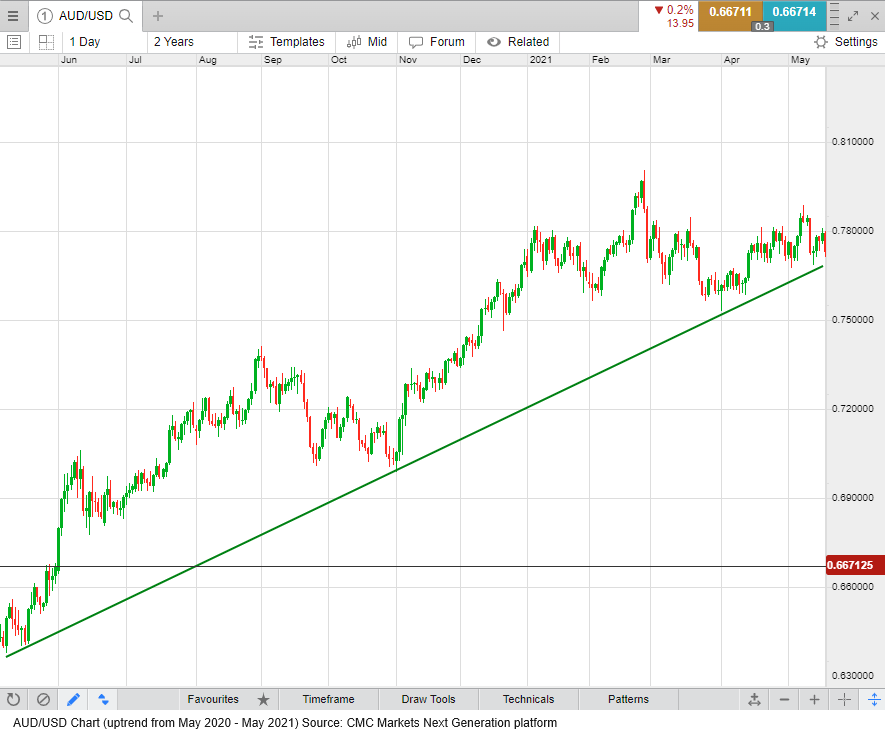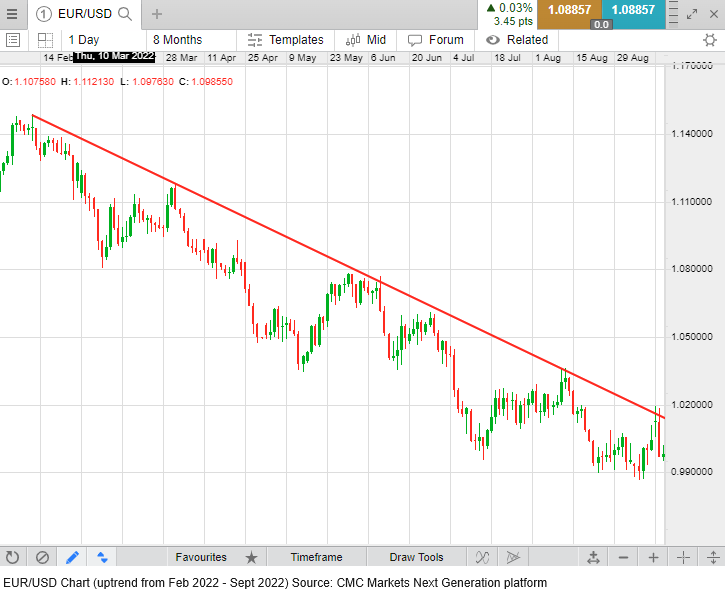When it comes to trading strategies, complicated does not necessarily mean better. Ultimately, the markets can only do one of three things: go up, down or sideways.
A simple trading strategy can be an effective way of catching significant moves, meaning you can use it across a variety of different markets.
Technical analysis
At the core of many strategies is the idea of trading with the trend – often referred to as the trend-following technique. Markets normally take a while to reach their destination, and trends can develop over hours, days, weeks, or months.
The core of any trend-following approach is to first identify the direction of the trend and use an opportunity of a slight change in this main trend to jump on board. For instance, if the market is in an uptrend, a trader would be looking to profit from an increase by buying. If the market is in a downtrend, the trader would be looking to profit from a fall by selling short.
Trendline analysis
Trend lines are a simple but effective way of identifying trends to build a trading strategy. These sit below the lows in an uptrend, and above the highs in a downtrend. The below examples will demonstrate how to draw these on a chart.


